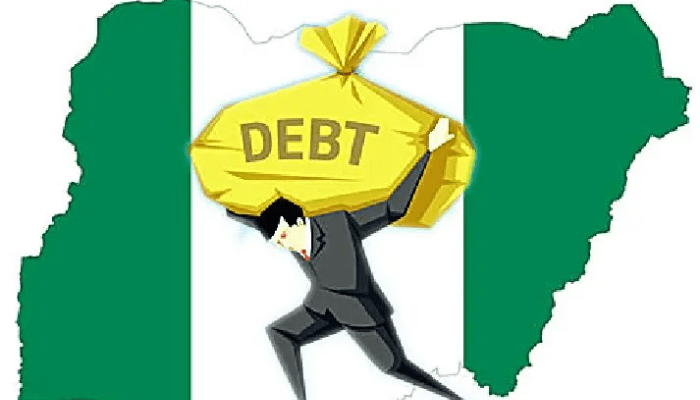
Nigeria is the third-largest debtor to the World Bank’s International Development Association (IDA) as of June 30, 2024, according to latest World Bank’s financial disclosures, representing the expansion in the country’s borrowing under President Bola Tinubu’s administration.
Nigeria’s debt exposure to the IDA has witnessed a substantial 14.4% increase, escalating from $14.3 billion in the fiscal year 2023 to $16.5 billion in FY2024.
This $2.2 billion surge in borrowing has propelled Nigeria into the top three IDA debtors for the first time, advancing from its previous position as the fourth-largest borrower in 2023.
The increase in Nigeria’s borrowing is reflective of the country’s ongoing efforts to address its economic challenges, including infrastructure development, poverty alleviation, and social investment programs.
However, it also raises concerns about the nation’s growing debt burden and the sustainability of its financial obligations.
Bola Tinubu administration, which took office in May 2023, has been actively pursuing international funding to support its ambitious economic and social reform agenda.
In the fiscal year 2024, spanning from July 2023 to June 2024, Nigeria received at least $2.2 billion from the World Bank. This period coincides with President Tinubu’s administration, highlightes Nigeria’s increasing dependence on international financial aid amid domestic economic difficulties.
This debt is specific to the International Development Association (IDA) and does not include any outstanding loans from the World Bank’s International Bank for Reconstruction and Development (IBRD).
Compared to other major IDA debtors, Bangladesh remains the largest borrower, with its debt rising from $19.3 billion in 2023 to $20.5 billion in 2024. Pakistan holds the second position with a stable debt of $17.9 billion during the same period.
India, previously the third-largest borrower with $17.9 billion in 2023, saw its IDA debt decrease to $15.9 billion in 2024, allowing Nigeria to move ahead.
Other IDA borrowers include Ethiopia, which saw its debt increase from $11.6 billion in 2023 to $12.2 billion in 2024.
Kenya and Vietnam each have debts of $12.0 billion. Along with Tanzania, Ghana, and Uganda, these countries make up the top ten IDA debtors, collectively accounting for 63% of the IDA’s total exposure as of June 30, 2024.
The IDA, an essential branch of the World Bank, provides concessional loans and grants to the world’s poorest countries, aiming to foster economic growth, reduce inequality, and improve living conditions in developing regions.
Meanwhile, under Tinubu’s administration, Nigeria has secured a total of $4.95 billion in World Bank loans, amidst growing concerns about rising external debt servicing costs. So far, only about 16% of these new loans have been disbursed.
However, the World Bank may approve an additional four loan projects for Nigeria this year, potentially totaling $2 billion.
According to the Debt Management Office (DMO), Nigeria’s total debt to the World Bank stood at $15.59 billion as of March 31, 2024.
Nigeria is facing its worst economic crisis in decades, with skyrocketing inflation, a national currency in free-fall and millions of people struggling to buy food. Only two years ago Africa’s biggest economy, Nigeria is projected to drop to fourth place this year.
The pain is widespread. Unions strike to protest salaries of around $20 a month. People die in stampedes, desperate for free sacks of rice. Hospitals are overrun with women wracked by spasms from calcium deficiencies.
Although President Bola Tinubu increased the minimum wage — after strike action and months-long negotiations with labour unions — from N30,000 to N70,000, his government has increased spending for officials at a time of nationwide starvation.
For workers earning the new N70,000, or $43, per month minimum wage, capricious inflation and naira value have inflicted too much damage for the changes to make any difference in their lives.
The crisis is largely believed to be rooted in two major changes implemented by Mr Tinubu, elected 14 months ago: the partial removal of fuel subsidies and the floating of the currency, which together have caused major price rises.
A nation of entrepreneurs, Nigeria’s more than 200 million citizens are skilled at managing in tough circumstances, without the services states usually provide. They generate their own electricity and source their own water. They take up arms and defend their communities when the armed forces cannot. They negotiate with armed kidnappers when family members are abducted.
But right now, their resourcefulness is being stretched to the limit.
